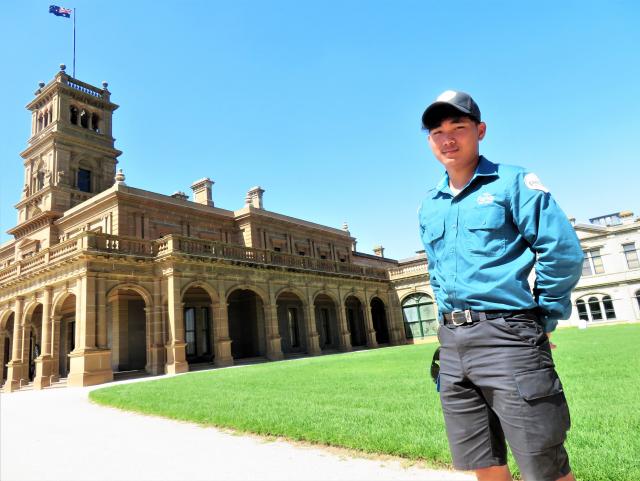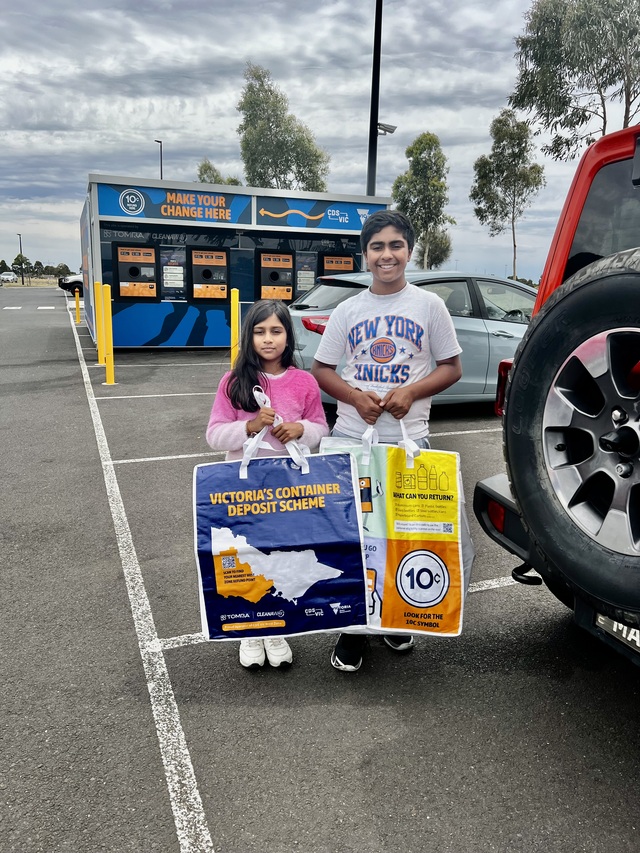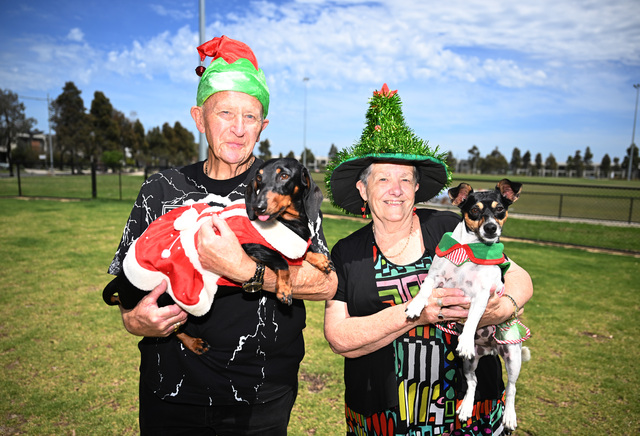The steamy jungles of the Thai-Myanmar border are a world away from the manicured lawns and parterre gardens of Werribee Park Mansion.
But for young refugee Nay Kaw, the pink flowering hibiscus in the mansion’s formal gardens are a link to his homeland.
The 20 year old recently took up a traineeship with Parks Victoria at
Werribee Park, putting him on a pathway to become just the second refugee park ranger in
Victoria.
”It is a dream come true for me and a great opportunity. I love the outdoors and to be working in an amazing environment like Werribee Park is amazing,” Nay Kaw said.
An ethnic Karen, Nay Kaw was born in the Mae La Refugee on the Thai-Myanmar border where his family fled after facing decades of persecution and ethnic cleansing at the hands of the Myanmar government.
“Growing up in the camp was hard. We were not allowed out of the camp and we were not allowed to work. Sometimes there was not enough food,” he said.
Nay Kaw’s time in the camp also saw tragedy strike.
“My father went into the jungle near the camp to gather food but he stepped on a land mine and
lost his leg,” he said.
In another land mine incident near the camp, his uncle lost his eyesight.
Nay Kaw was 15 in 2019 when he and his mother, father and his four siblings arrived in Melbourne.
After receiving support from refugee settlement agency AMES Australia, the family settled in Laverton.
After finishing his studies at Laverton P-12 College last year, Nay Kaw was working casually in a factory when he heard about the opportunity with Parks Victoria from a local community leader.
Now that he is a trainee, he’ll be taking guidance from another Karen community leader, Victoria’s first refugee park ranger Hsar Thein Ju.
Like Nay Kaw, Hsar also grew up in the Mae La camp and also did a traineeship with Parks Victoria.
“My role will be to guide Nay Kaw along the path that I took and achieve what he wants to do into the future,” Hsar said.
Werribee Park Chief Ranger James Brincat said employees like Nay Kaw and Hsar were a positive for both the park and the local community.
“Traineeships and apprenticeships make these kinds of jobs accessible especially for people from our new and emerging communities and it goes some way to achieving diversity in our workforce so that we are able to interact with our increasingly diverse park visitor base,” he said.







